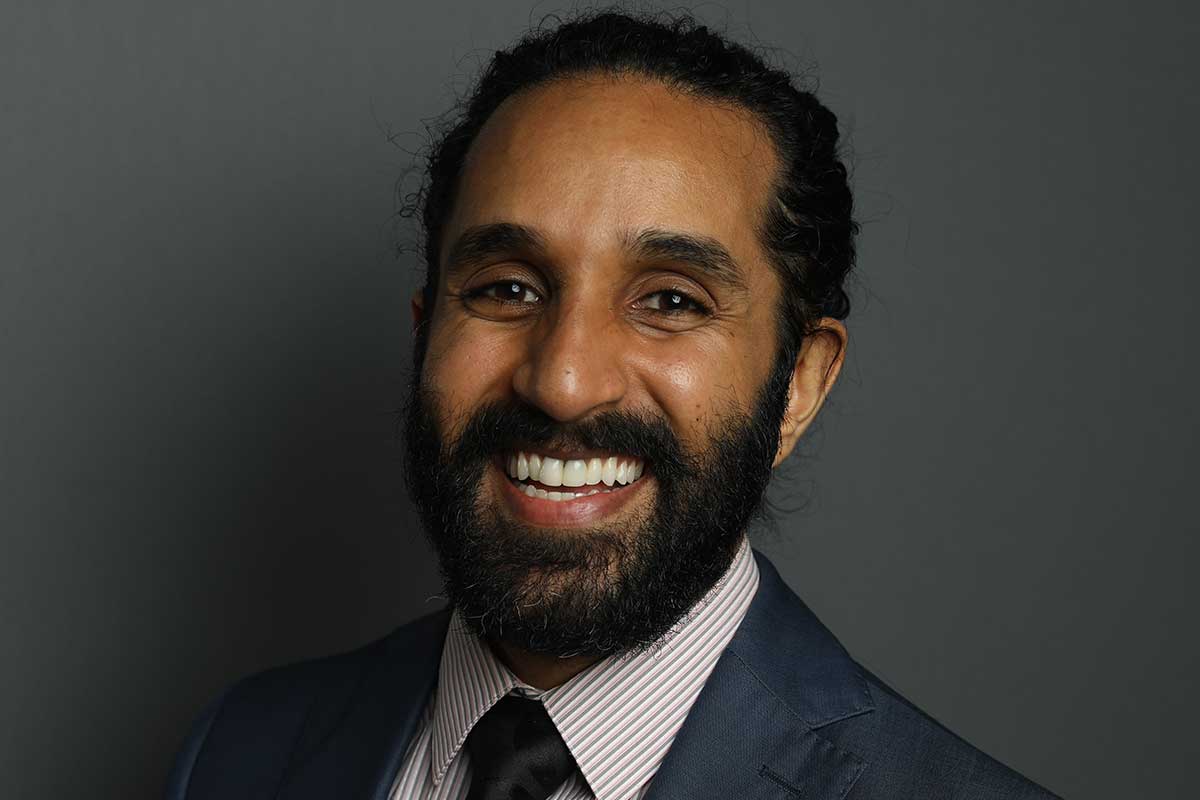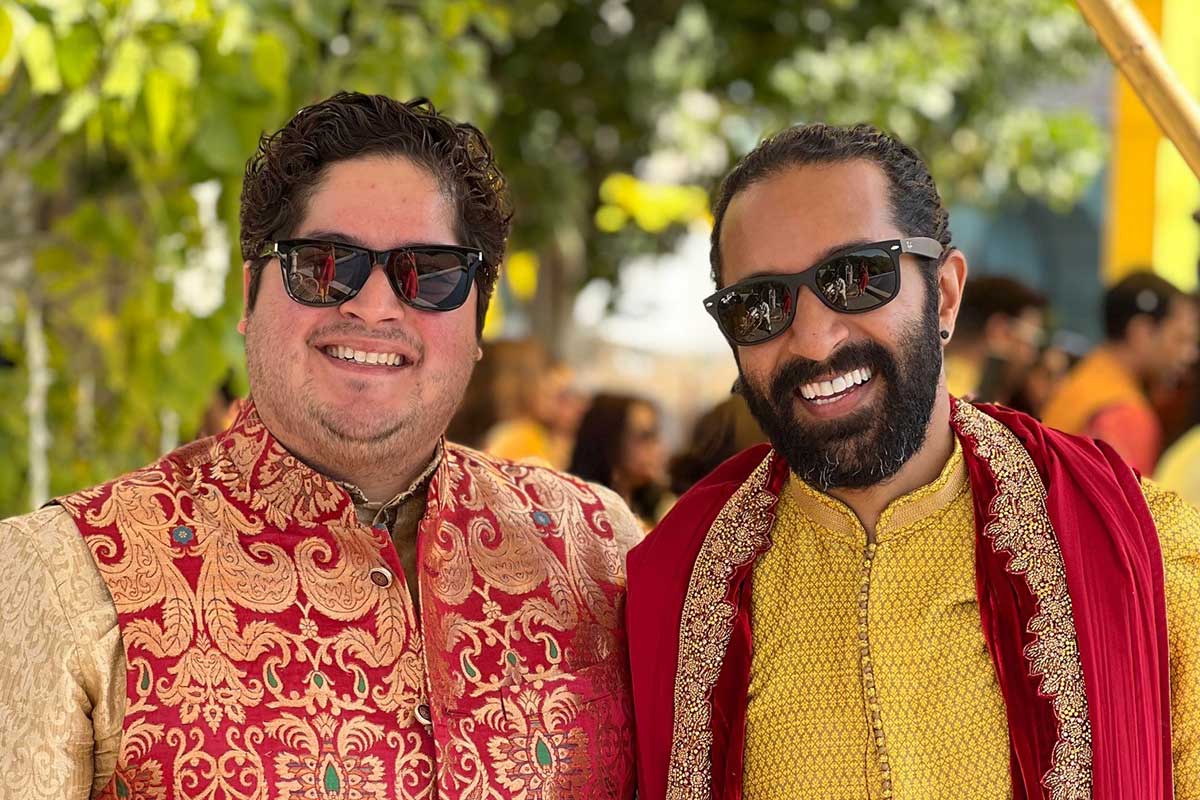
(From left) Bharat and his partner, Gregory, at Valley of Fire State Park in Nevada

Bharat Narang, clinical research manager at MSK’s Immigrant Health and Cancer Disparities Service
Pride Month 2022 is in full effect in the U.S. Many of us are seeing messages of allyship as we scroll on social media or stroll along our communities’ Main Street.
But behind the rainbow flags, there are many LGBTQ stories that must be told and heard. Stories of personal pain, alienation from family, and societal persecution, reminds Bharat Narang, a clinical research manager at the Immigrant Health and Cancer Disparities Service at Memorial Sloan Kettering Cancer Center (MSK).
“We have this enormous festival,” Bharat says, referring to New York City’s annual Pride March. “I celebrate pride, but please don’t forget there are still struggles. We need to have more difficult conversations.”
Finding His Words
Bharat was born and raised in a suburb of Houston to parents who immigrated to the U.S. from India. Growing up, Bharat “didn’t understand what gay was,” as a person’s sexual orientation was never discussed in his home.
“There are taboos around homosexuality in Indian and other South Asian cultures,” he explains. “We’re taught that we should be following traditional societal norms and marrying the opposite sex.”
“I knew of the word gay in high school,” Bharat says. adding, “[I] didn’t explore that part of myself [until college],” when he came out to close friends.
Moving to New York City in 2011 helped Bharat find a wider community and a deeper sense of belonging, he says.
He also found love. He met his partner, Gregory, an anesthesiologist, at a student-run LGBTQ+ event at Mount Sinai, where they both studied. “Gregory has been very true to his identity,” Bharat says. “We started talking, and the rest is history.”

Bharat (right) and his partner, Gregory, attend a wedding in India
This past March, the couple celebrated their 10th anniversary, bonded in part by “being polar opposites,” says Bharat. “I’m a homebody, and Gregory explores the world. I learn from him every day.”
While Bharat’s parents have met Gregory, they never ask about their son’s relationship — a painful reminder that Bharat isn’t allowed to be his authentic self with his family, he says.
“I’m not truly out with my family, and this is challenging to maneuver,” Bharat says. “There is a dismissiveness from my parents. On a recent family trip to India, my mom told me not to tell my family in India I was gay, even though all my cousins know. It was the first time my mom said anything to me [about my sexual orientation]. It was difficult for me. I cried.”
Bharat emphasizes his experience isn’t unique. He recently met a 60-year-old gay man who was estranged from his family. Bharat also points to countries in which LGBTQ+ communities struggle to thrive or homosexuality is banned by law.
“It’s frightening and not shared enough,” he says. “We are forward-thinking in New York City, and open and exposed to all lifestyles. We have to remember this isn’t the norm in other communities in the world.”
The Meaning of Pride Month
As Bharat reflects on Pride Month, he also reflects on how people can be better LGBTQ+ allies.
He says one way to show support is by asking your LGBTQ+ colleagues about their lives outside of the office and actively listening to their answers. When people are allowed to bring their true selves to the workplace, it fosters a culture of belonging and inclusivity.
“These conversations need to be two-way,” Bharat says. “If I’m asking you about your families or what you and your partner did over the weekend, please do the same in return. When you recognize my partner, you are recognizing me,” he says.